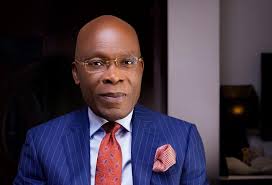Zinox Group Chairman, Leo Stan Ekeh, has urged the Federal Government to subsidise electricity supply for schools and research centres, warning that poor power supply is slowing down Nigeria’s progress in global innovation.
Speaking at the Nigeria Computer Society’s annual conference in Kano, Ekeh said less than five per cent of schools and research institutions in Nigeria can afford to power their campuses for up to six hours daily. He stressed that without affordable and stable electricity, students and lecturers cannot effectively use digital tools or connect with global knowledge platforms.
“Under these conditions, how can knowledge workers compete globally or students access world-class digital tools? Even lecturers who manage to own laptops and tablets often go weeks without being able to recharge them,” he lamented.
Nigeria has been reducing electricity subsidies as part of efforts to manage government spending. However, Ekeh insisted that education should be treated as a priority sector. According to him, subsidising electricity for schools would strengthen human capital development and help the country bridge its digital gap.
He warned that without urgent action, Nigeria risks being permanently left behind in the global digital economy.
Ekeh also highlighted the readiness of the private sector to support digital growth. He said Zinox already has global certifications and capacity to deliver digital solutions at scale. “We are fully equipped, both technically and financially, to support corporations and governments in this AI-powered race,” he said.
The technology entrepreneur linked the energy challenge to wider structural problems holding back Nigeria’s ICT sector. He called for investment in local manufacturing, digital literacy programmes, and policies that will encourage partnerships with private companies.
He stressed that the next five years will be critical for Nigeria’s rise in the global digital economy. “If we combine common sense with technology and leverage our population, we can make wealth a right for over 75 per cent of Nigerians,” Ekeh said.
He added that investing in technology remains one of the cheapest and most sustainable ways to grow the economy, with the potential to deliver massive long-term rewards.
